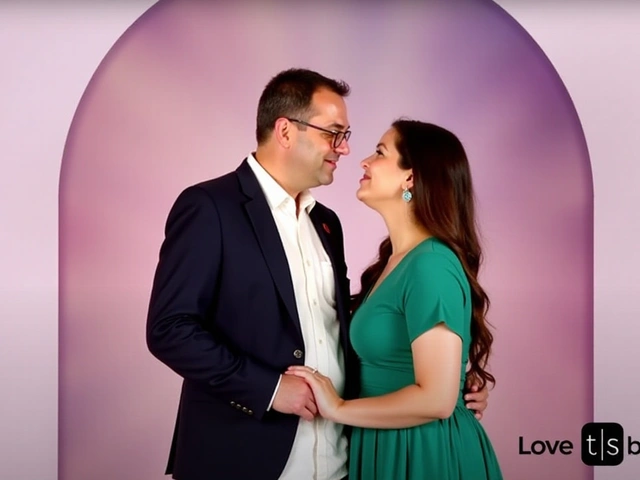
When Adam Lopez, a 39‑year‑old forklift driver from Mattishall, discovered a sudden surge in his bank balance, the UK was reminded how fast fortune can flip a life upside‑down.
The boost came from the UK National Lottery – a £5 scratch‑off ticket bought at a corner shop near Norwich turned his account from a modest £12.40 to £1,000,012.40 in July 2023. The figure translates to roughly $1,340,017, enough to buy a house, a handful of cars, or, as Lopez soon learned, a ticket to a very different kind of party.
From Forklift to Flashy Rides
Lopez’s first instinct was to celebrate. He quit his job the same day, telling friends he needed "well‑deserved fun" after decades of early‑morning shifts. Within weeks he ordered two Range Rovers – one for himself and one for his mother – and booked a family vacation to Barbados. The trip, complete with sun‑soaked beaches and all‑inclusive meals, was billed as a thank‑you to his loved ones.
"When I saw the million pounds, I didn’t know what to do, so I just put the scratch card in the glove compartment without thinking," Lopez recalled to AS English. "Not even in my wildest dreams did I imagine this would happen to me. I feel so blessed."
Turning the Party Up… Too High
But the celebrations didn’t stop at the airport. Within days, Lopez’s social calendar was packed with night outs, bottle‑service clubs, and a steady stream of friends eager to share in his windfall. The partying became a daily routine – a blur of music, drinks, and luxury that left little room for the routine structure his previous job had provided.
It was only after a few months of relentless nights that his body issued a loud warning. An emergency admission to a Norfolk hospital in December 2023 cited severe dehydration, extreme fatigue, and a bleed that required a short stay in intensive care. "It was a wake‑up call," he told 97X.com, his voice hoarse from the ordeal. "I left my job and I never should have done that. I lost the structure that kept me grounded."
When Money Becomes a Curse
Lopez’s story is far from an isolated case. In the early 2000s, Michael Carroll, a 19‑year‑old garbage collector from Norfolk, won £9.7 million in the same lottery. Nicknamed the "Lotto Lout," Carroll splurged on parties, a mansion, and a fleet of cars, only to declare bankruptcy by 2010 and return to manual labor.
Across the Atlantic, David Lee Edwards walked away from a $21 million Powerball jackpot in 2001 with a handful of cash, a habit of drug use, and a series of costly parties that drained his fortune in five years. He died in poverty, a stark reminder that cash alone doesn’t guarantee security.
Canadian winner Gerald Muswagon and New York’s Curtis Sharp faced similar downfalls, each trading millions for nights that ended in financial ruin.
- Michael Carroll: £9.7 million (2002) – bankrupt by 2010.
- David Lee Edwards: $21 million (2001) – depleted within five years.
- Gerald Muswagon: C$10 million (2011) – lost wealth, died in hardship.
- Curtis Sharp: $5 million (1980s) – finances vanished after divorces and alcoholism.
These patterns have drawn the attention of financial psychologists who warn that sudden wealth can trigger a “boom‑bust” cycle when there’s no financial literacy or support system in place.
What Experts Say About Sudden Wealth
Professor Laura Whitaker of the University of Manchester’s Psychology Department notes, "The brain’s reward system lights up with a massive influx of money, but without a pre‑existing framework for managing that reward, people often chase the high through external stimuli – parties, cars, status symbols. The result is a rapid depletion of both money and health."
Whitaker adds that structured budgeting, professional financial advice, and retaining some form of daily routine can mitigate the risk. "A job provides more than income; it offers social contact, purpose, and a schedule. Stripping that away can leave a gaping void, which many try to fill with excess."
What’s Next for Adam Lopez?
As of early 2024, Lopez remains under medical observation, with doctors emphasizing the need for lifestyle changes before he fully recovers. He has hinted at seeking financial counseling, though he has not disclosed whether any of his winnings are still intact.
"I’m learning the hard way that money can’t replace health," he said in a recent interview. "I hope my story helps others think twice before throwing the rule book out the window."
Local councilor Helen Marsh from Breckland has pledged to work with community groups to offer financial‑wellness workshops, aiming to prevent other residents from walking a similar road.
Frequently Asked Questions
How did Adam Lopez’s win impact his family?
Lopez’s sudden cash flow let his mother receive a new Range Rover and funded a family holiday to Barbados. While the trip brought short‑term joy, the subsequent financial strain and his hospitalization created anxiety about long‑term stability, prompting relatives to seek professional advice.
What legal safeguards exist for UK lottery winners?
The UK National Lottery requires winners to claim their prize within 90 days and offers anonymity on request. However, there’s no mandated financial counseling, leaving winners to arrange their own support, which many, like Lopez, overlook until problems arise.
Why do many lottery winners end up broke?
Psychological research links sudden wealth to impulsive spending, loss of routine, and poor investment decisions. Without a financial plan, the initial excitement can turn into reckless behavior, as seen in the cases of Michael Carroll and David Lee Edwards.
What steps can new lottery winners take to protect their money?
Experts advise immediate consultation with a certified financial planner, setting up a trust or limited company to manage assets, and maintaining a steady source of income or routine. Taking time before making big purchases also helps curb the impulse to splurge.
Is the UK government considering more support for big‑ticket winners?
There have been calls from consumer groups for mandatory financial counseling as part of the claim process, but as of now the UK government has not introduced compulsory support, leaving it to private advisors and charities.
10 Comments
Henry Cohen
October 9 2025
yeah but the real problem is the lack of brain‑cells to manage that kind of cash they just go wild and waste it kla having a big party every single night dont they.
Dawn Waller
October 9 2025
Ah, the tragicomedy of modern affluence-one moment you are hoisting pallets, the next you are hoisting martinis!; Is it not curious how the human psyche morphs from diligent laborer to existential wanderer; the pursuit of pleasure becomes a hollow echo in the corridors of newfound wealth; perhaps, dear lads and lasses, the real bankruptcy is not of the wallet but of the soul?
Grace Melville
October 9 2025
Great story, but remember to set up a budget and a savings plan. :)
Ashlynn Barbery
October 9 2025
Indeed, establishing a structured financial framework is paramount. May I suggest consulting a certified financial planner to devise a diversified investment strategy that aligns with your long‑term goals?
Sarah Graham
October 9 2025
I feel for Adam; sudden wealth can be overwhelming, yet a supportive community can make a big difference.
Jauregui Genoveva
October 9 2025
Honestly, the moral is clear – money isn’t a free pass to ignore personal responsibility 🙄💸.
Quinten Squires
October 9 2025
Let’s break this down logically; sudden influxes of capital are like shock absorbers that have never been tested. When the brain detects a large reward, dopamine spikes and the executive function gets hijacked. People start seeking high‑intensity stimuli to maintain that high, which often translates into binge drinking, lavish purchases, and nonstop partying. The problem is that these behaviours deplete both physical health and financial resources at an exponential rate. In Adam’s case, the lack of a stable routine removed a key anchor that would have otherwise moderated his impulses. The same pattern shows up in the anecdotes of Michael Carroll and David Lee Edwards – they all had a meteoric rise followed by a precipitous fall. Psychological literature calls this the “boom‑bust” cycle, a well‑documented phenomenon in sudden‑wealth research. Moreover, without proper financial literacy, even a million pounds can be exhausted by misguided spending on luxury assets that depreciate quickly. The medical complications he faced-dehydration, fatigue, and a bleed-are classic symptoms of chronic overexertion and neglect. It’s a reminder that the body cannot sustain the kind of relentless high‑octane lifestyle that a sudden windfall can encourage. Experts recommend retaining a job or at least some structured activity to provide social interaction and purpose, which act as protective factors against such collapse. Financial advisors also advise setting up a trust or a controlled disbursement plan, which forces the winner to receive money in installments rather than a lump sum, thereby reducing the temptation to splurge. Community support, such as the workshops proposed by councilor Helen Marsh, can fill the educational gap that the lottery system currently overlooks. In short, the intersection of neurobiology, economics, and social structure determines whether a lottery win becomes a blessing or a curse.
Tyler Manning
October 9 2025
While the narrative is engaging, it is imperative to emphasize personal responsibility; such outcomes are not solely the result of external circumstances but also stem from individual choices, particularly the decision to abandon a constructive occupation without a contingency plan.
james patel
October 9 2025
Interesting read.






Lane Herron
October 9 2025
Wow, another one of those classic ‘lottery‑induced identity crises’ – the kind of narrative that only a pretentious analyst could appreciate. The moment the digits line up, you suddenly become a self‑proclaimed financial guru, despite having the fiscal acumen of a forklift.